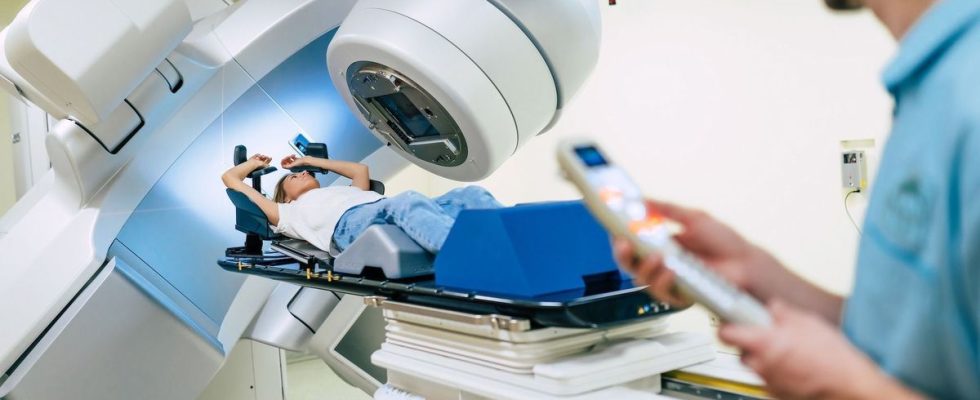Published on
Updated
Reading 2 min.
in collaboration with
Dr Gérald Kierzek (Medical Director of Doctissimo)
Medical validation:
November 13, 2023
At Tours University Hospital, a patient treated for breast cancer was the victim of a serious medical error. She had radiation therapy to the wrong breast.
This was a serious error committed by the medical teams at Tours University Hospital. A woman, treated for breast cancer in the radiotherapy department of Bretonneau hospital (Tours), underwent a series of rays on the wrong breast.
The patient should have been irradiated to the right breast
As reported by France 3 Val de Loire , the facts date back to last summer. A woman suffering from breast cancer is treated by the hospital’s oncology and radiotherapy department.
To treat it, the teams use a “external radiotherapy” – which consists of delivering ionizing radiation to the diseased breast.
The problem ? The treated breast was not the right one. The patient should have been irradiated to the right breast.
“A laterality error (right-left inversion) occurred during treatment preparation, resulting in the left breast being contoured in place of the right breast as the area to be treated.“, reveals, in a communicated, the Nuclear Safety Authority (ASN). “One of the factors contributing to this laterality error could be linked to the presence of discordant information in the report of the initial medical consultation. Subsequent steps, including contouring and various validations, failed to identify this error“, she explains.
An error – classified at level two on a severity scale of up to 7 – which unfortunately lasted: the medical teams did not realize it until the 25th radiation session… out of the 28 planned.
An extremely rare and serious fault
Dr. Kierzek is surprised that such an error could have occurred.
“At the hospital, several people must check the patient’s information: the reception team, but also the medical staff, the doctor, and the radiotherapist. There is also a “marking” of the diseased breast. Theoretically, this fault should not have happened“, he emphasizes. Reason why “You should never hesitate to ask questions to medical staff, especially when something seems strange to you.“.
Same thing for hospital staff: “Patients should not complain when asked or asked questions. Better to have a surplus of information than not enough“, assures the medical director of Doctissimo.
Serious harm to the patient
Following this poor radiotherapy, the patient risks developing radiation-induced cancer, which can occur years after the irradiation received.
A risk, “unfortunately very real“, believes Dr. Kierzek.
The patient, informed of the error and its potential consequences, should soon receive treatment to heal the breast that should have been treated.
